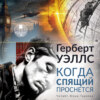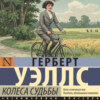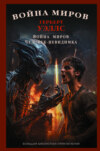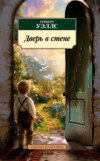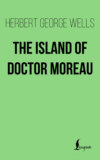Loe raamatut: «Mankind in the Making»
PREFACE
It may save misunderstanding if a word or so be said here of the aim and scope of this book. It is written in relation to a previous work, Anticipations, [Footnote: Published by Harper Bros.] and together with that and a small pamphlet, “The Discovery of the Future,” [Footnote: Nature, vol. lxv. (1901-2), p. 326, and reprinted in the Smithsonian Report for 1902] presents a general theory of social development and of social and political conduct. It is an attempt to deal with social and political questions in a new way and from a new starting-point, viewing the whole social and political world as aspects of one universal evolving scheme, and placing all social and political activities in a defined relation to that; and to this general method and trend it is that the attention of the reader is especially directed. The two books and the pamphlet together are to be regarded as an essay in presentation. It is a work that the writer admits he has undertaken primarily for his own mental comfort. He is remarkably not qualified to assume an authoritative tone in these matters, and he is acutely aware of the many defects in detailed knowledge, in temper, and in training these papers collectively display. He is aware that at such points, for example, as the reference to authorities in the chapter on the biological problem, and to books in the educational chapter, the lacunar quality of his reading and knowledge is only too evident; to fill in and complete his design – notably in the fourth paper – he has had quite frankly to jerry-build here and there. Nevertheless, he ventures to publish this book. There are phases in the development of every science when an incautious outsider may think himself almost necessary, when sketchiness ceases to be a sin, when the mere facts of irresponsibility and an untrained interest may permit a freshness, a freedom of mental gesture that would be inconvenient and compromising for the specialist; and such a phase, it is submitted, has been reached in this field of speculation. Moreover, the work attempted is not so much special and technical as a work of reconciliation, the suggestion of broad generalizations upon which divergent specialists may meet, a business for non-technical expression, and in which a man who knows a little of biology, a little of physical science, and a little in a practical way of social stratification, who has concerned himself with education and aspired to creative art, may claim in his very amateurishness a special qualification. And in addition, it is particularly a business for some irresponsible writer, outside the complications of practical politics, some man who, politically, “doesn’t matter,” to provide the first tentatives of a political doctrine that shall be equally available for application in the British Empire and in the United States. To that we must come, unless our talk of co-operation, of reunion, is no more than sentimental dreaming. We have to get into line, and that we cannot do while over here and over there men hold themselves bound by old party formulae, by loyalties and institutions, that are becoming, that have become, provincial in proportion to our new and wider needs. My instances are commonly British, but all the broad project of this book – the discussion of the quality of the average birth and of the average home, the educational scheme, the suggestions for the organization of literature and a common language, the criticism of polling and the jury system, and the ideal of a Republic with an apparatus of honour – is, I submit, addressed to, and could be adopted by, any English-reading and English-speaking man. No doubt the spirit of the inquiry is more British than American, that the abandonment of Rousseau and anarchic democracy is more complete than American thought is yet prepared for, but that is a difference not of quality but of degree. And even the appendix, which at a hasty glance may seem to be no more than the discussion of British parochial boundaries, does indeed develop principles of primary importance in the fundamental schism of American politics between the local State government and the central power. So much of apology and explanation I owe to the reader, to the contemporary specialist, and to myself.
These papers were first published in the British Fortnightly Review and in the American Cosmopolitan. In the latter periodical they were, for the most part, printed from uncorrected proofs set up from an early version. This periodical publication produced a considerable correspondence, which has been of very great service in the final revision. These papers have indeed been honoured by letters from men and women of almost every profession, and by a really very considerable amount of genuine criticism in the British press. Nothing, I think, could witness more effectually to the demand for such discussions of general principle, to the need felt for some nuclear matter to crystallize upon at the present time, however poor its quality, than this fact. Here I can only thank the writers collectively, and call their attention to the more practical gratitude of my frequently modified text.
I would, however, like to express my especial indebtedness to my friend, Mr. Graham Wallas, who generously toiled through the whole of my typewritten copy, and gave me much valuable advice, and to Mr. C. G. Stuart Menteath for some valuable references.
H. G. WELLS.
SANDGATE, July, 1903.
I. THE NEW REPUBLIC
Toleration to-day is becoming a different thing from the toleration of former times. The toleration of the past consisted very largely in saying, “You are utterly wrong and totally accurst, there is no truth but my truth and that you deny, but it is not my place to destroy you and so I let you go.” Nowadays there is a real disposition to accept the qualified nature of one’s private certainties. One may have arrived at very definite views, one may have come to beliefs quite binding upon one’s self, without supposing them to be imperative upon other people. To write “I believe” is not only less presumptuous and aggressive in such matters than to write “it is true,” but it is also nearer the reality of the case. One knows what seems true to one’s self, but we are coming to realize that the world is great and complex, beyond the utmost power of such minds as ours. Every day of life drives that conviction further home. And it is possible to maintain that in perhaps quite a great number of ethical, social, and political questions there is no absolute “truth” at all – at least for finite beings. To one intellectual temperament things may have a moral tint and aspect, differing widely from that they present to another; and yet each may be in its own way right. The wide differences in character and quality between one human being and another may quite conceivably involve not only differences in moral obligation, but differences in fundamental moral aspect – we may act and react upon each other towards a universal end, but without any universally applicable rule of conduct whatever. In some greater vision than mine, my right and wrong may be no more than hammer and anvil in the accomplishment of a design larger than I can understand. So that these papers are not written primarily for all, nor with the same intention towards all who read them. They are designed first for those who are predisposed for their reception. Then they are intended to display in an orderly manner a point of view, and how things look from that point of view, to those who are not so predisposed. These latter will either develop into adherents as they read, or, what is more likely, they will exchange a vague disorderly objection for a clearly defined and understood difference. To arrive at such an understanding is often for practical purposes as good as unanimity; for in narrowing down the issue to some central point or principle, we develop just how far those who are divergent may go together before separation or conflict become inevitable, and save something of our time and of our lives from those misunderstandings, and those secondary differences of no practical importance whatever, which make such disastrous waste of human energy.
Now the point of view which will be displayed in relation to a number of wide questions in these pages is primarily that of the writer’s. But he hopes and believes that among those who read what he has to say, there will be found not only many to understand, but some to agree with him. In many ways he is inclined to believe the development of his views may be typical of the sort of development that has gone on to a greater or lesser extent in the minds of many of the younger men during the last twenty years, and it is in that belief that he is now presenting them.
And the questions that will be dealt with in relation to this point of view are all those questions outside a man’s purely private self – if he have a purely private self – in which he interacts with his fellow-man. Our attempt will be to put in order, to reduce to principle, what is at present in countless instances a mass of inconsistent proceedings, to frame a general theory in accordance with modern conditions of social and political activity.
This is one man’s proposal, his attempt to supply a need that has oppressed him for many years, a need that he has not only found in his own schemes of conduct, but that he has observed in the thought of numberless people about him, rendering their action fragmentary, wasteful in the gross, and ineffective in the net result, the need for some general principle, some leading idea, some standard, sufficiently comprehensive to be of real guiding value in social and political matters, in many doubtful issues of private conduct, and throughout the business of dealing with one’s fellow-men. No doubt there are many who do not feel such a need at all, and with these we may part company forthwith; there are, for example, those who profess the artistic temperament and follow the impulse of the moment, and those who consult an inner light in some entirely mystical manner. But neither of these I believe is the most abundant type in the English-speaking communities. My impression is that with most of the minds I have been able to examine with any thoroughness, the attempt to systematize one’s private and public conduct alike, and to reduce it to spacious general rules, to attempt, if not to succeed, in making it coherent, consistent, and uniformly directed, is an almost instinctive proceeding.
There is an objection I may anticipate at this point. If I am to leave this statement unqualified, it would certainly be objected that such a need is no more nor less than the need of religion, that a properly formulated religion does supply a trustworthy guide at every fork and labyrinth in life. By my allusion to the failure of old formulae and methods to satisfy now, I am afraid many people will choose to understand that I refer to what is often spoken of as the conflict of religion and science, and that I intend to propound some contribution to the conflict. I will at any rate anticipate that objection here, in order to mark out my boundaries with greater precision.
Taken in its completeness, I submit that it is a greater claim than almost any religion can justifiably make, to satisfy the need I have stated. No religion prescribes rules that can be immediately applied to every eventuality. Between the general rules laid down and the particular instance there is always a wide gap, into which doubts and alternatives enter and the private judgment has play. No doubt upon certain defined issues of every-day life some religions are absolutely explicit; the Mahomedan religion, for example, is very uncompromising upon the use of wine, and the law of the Ten Commandments completely prohibits the making of graven images, and almost all the great variety of creeds professed among us English-speaking peoples prescribe certain general definitions of what is righteous and what constitutes sin. But upon a thousand questions of great public importance, on the question of forms of government, of social and educational necessities, of one’s course and attitude towards such great facts as the press, trusts, housing, and the like, religion, as it is generally understood, gives by itself no conclusive light. It may, no doubt, give a directing light in some cases, but not a conclusive light. It leaves us inconsistent and uncertain amidst these unavoidable problems. Yet upon these questions most people feel that something more is needed than the mood of the moment or the spin of a coin. Religious conviction may help us, it may stimulate us to press for clearer light upon these matters, but it certainly does not give us any decisions.
It is possible to be either intensely religious or utterly indifferent to religious matters and yet care nothing for these things. One may be a Pietist to whom the world is a fleeting show of no importance whatever, or one may say, “Let us eat, drink, and be merry, for to-morrow we die”: the net result in regard to my need is the same. These questions appear to be on a different plane from religion and religious discussion; they look outward, while essentially religion looks inward to the soul, and, given the necessary temperament, it is possible to approach them in an unbiassed manner from almost any starting-point of religious profession. One man may believe in the immortality of the soul and another may not; one man may be a Swedenborgian, another a Roman Catholic, another a Calvinistic Methodist, another an English High Churchman, another a Positivist, or a Parsee, or a Jew; the fact remains that they must go about doing all sorts of things in common every day. They may derive their ultimate motives and sanctions from the most various sources, they may worship in the most contrasted temples and yet meet unanimously in the market-place with a desire to shape their general activities to the form of a “public spirited” life, and when at last the life of every day is summed up, “to leave the world better than they found it.” And it is from that most excellent expression I would start, or rather from a sort of amplified restatement of that expression – outside the province of religious discussion altogether.
A man who will build on that expression as his foundation in political and social matters, has at least the possibility of agreement in the scheme of action these papers will unfold. For though we theorize it is at action that our speculations will aim. They will take the shape of an organized political and social doctrine. It will be convenient to give this doctrine a name, and for reasons that will be clear enough to those who have read my book Anticipations this doctrine will be spoken of throughout as “New Republicanism,” the doctrine of the New Republic.
The central conception of this New Republicanism as it has shaped itself in my mind, lies in attaching pre-eminent importance to certain aspects of human life, and in subordinating systematically and always, all other considerations to these cardinal aspects. It begins with a way of looking at life. It insists upon that way, it will regard no human concern at all except in that way. And the way, putting the thing as compactly as possible, is to reject and set aside all abstract, refined, and intellectualized ideas as starting propositions, such ideas as Right, Liberty, Happiness, Duty or Beauty, and to hold fast to the assertion of the fundamental nature of life as a tissue and succession of births. These other things may be important, they may be profoundly important, but they are not primary. We cannot build upon any one of them and get a structure that will comprehend all the aspects of life.
For the great majority of mankind at least it can be held that life resolves itself quite simply and obviously into three cardinal phases. There is a period of youth and preparation, a great insurgence of emotion and enterprise centering about the passion of Love, and a third period in which, arising amidst the warmth and stir of the second, interweaving indeed with the second, the care and love of offspring becomes the central interest in life. In the babble of the grandchildren, with all the sons and daughters grown and secure, the typical life of humanity ebbs and ends. Looked at thus with a primary regard to its broadest aspect, life is seen as essentially a matter of reproduction; first a growth and training to that end, then commonly mating and actual physical reproduction, and finally the consummation of these things in parental nurture and education. Love, Home and Children, these are the heart-words of life. Not only is the general outline of the normal healthy human life reproductive, but a vast proportion of the infinitely complex and interwoven interests that fill that outline with incessant interest can be shown by a careful analysis to be more or less directly reproductive also. The toil of a man’s daily work is rarely for himself alone, it goes to feed, to clothe, to educate those cardinal consequences of his being, his children; he builds for them, he plants for them, he plans for them, his social intercourse, his political interests, whatever his immediate motives, tend finally to secure their welfare. Even more obviously is this the case with his wife. Even in rest and recreation life still manifests its quality; the books the ordinary man reads turn enormously on love-making, his theatre has scarcely ever a play that has not primarily a strong love interest, his art rises to its most consummate triumphs in Venus and Madonna, and his music is saturated in love suggestions. Not only is this so with the right and proper life, but the greater portion of those acts we call vice draw their stimulus and pleasure from the impulses that subserve this sustaining fact of our being, and they are vicious only because they evade or spoil their proper end. This is really no new discovery at all, only the stripping bare of it is new. In nearly every religious and moral system in the world indeed, the predominant mass of the exposition of sin and saving virtue positively or negatively centres upon birth. Positively in the enormous stresses, the sacramental values which are concentrated upon marriage and the initial circumstances of being, and negatively in a thousand significant repudiations. Even when the devotee most strenuously renounces this world and all its works, when St. Anthony flees into the desert or the pious Durtal wrestles in his cell, when the pale nun prays in vigil and the hermit mounts his pillar, it is Celibacy, that great denial of life, that sings through all their struggle, it is this business of births as the central fact of life they still have most in mind.
This is not human life merely, it is all life. This living world, as the New Republican will see it, is no more than a great birth-place, an incessant renewal, an undying fresh beginning and unfolding of life. Take away this fact of birth and what is there remaining? A world without flowers, without the singing of birds, without the freshness of youth, with a spring that brings no seedlings and a year that bears no harvest, without beginnings and without defeats, a vast stagnation, a universe of inconsequent matter – Death. Not only does the substance of life vanish if we eliminate births and all that is related to births, but whatever remains, if anything remains, of aesthetic and intellectual and spiritual experience, collapses utterly and falls apart, when this essential substratum of all experience is withdrawn. So at any rate the world presents itself in the view the New Republican takes. And if it should chance that the reader finds this ring untrue to him, then he may take it that he stands outside us, that the New Republic is not for him.
It may be submitted that this statement that Life is a texture of births may be accepted by minds of the most divergent religious and philosophical profession. No fundamental or recondite admissions are proposed here, but only that the every-day life for every-day purposes has this shape and nature. The utter materialist may say that life to him is a fortuitous concurrence of atoms, a chance kinking in the universal fabric of matter. It is not our present business to confute him. The fact remains this is the form the kinking has taken. The believer, sedulous for his soul’s welfare, may say that Life is to him an arena of spiritual conflict, but this is the character of the conflict, this is the business from which all the tests and exercises of his soul are drawn. It matters not in this present discussion if Life is no more than a dream; the dream is this.
And now one comes to another step. The reader may give his assent to this statement as obvious or he may guard his assent with a qualification or so, but I doubt if he will deny it. No one, I expect, will categorically deny it. But although no one will do that, a great number of people who have not clearly seen things in this light, do in thought and in many details of their practice follow a line that is, in effect, a flat denial of what is here proposed. Life no doubt is a fabric woven of births and the struggle to maintain and develop and multiply lives. It does not follow that life is consciously a fabric woven of births and the struggle to maintain and develop and multiply lives. I do not suppose a cat or a savage sees it in that light. A cat’s standpoint is probably strictly individualistic. She sees the whole universe as a scheme of more or less useful, pleasurable and interesting things concentrated upon her sensitive and interesting personality. With a sinuous determination she evades disagreeables and pursues delights; life is to her quite clearly and simply a succession of pleasures, sensations and interests, among which interests there happen to be – kittens!
And this way of regarding life is by no means confined to animals and savages. I would even go so far as to suggest that it is only within the last hundred years that any considerable number of thoughtful people have come to look at life steadily and consistently as being shaped to this form, to the form of a series of births, growths and births. The most general truths are those last apprehended. The universal fact of gravitation, for example, which pervades all being, received its complete recognition scarcely two hundred years ago. And again children and savages live in air, breathe air, are saturated with air, die for five minutes’ need of it, and never definitely realize there is such a thing as air at all. The vast mass of human expression in act and art and literature takes a narrower view than we have here formulated; it presents each man not only as isolated from and antagonized with the world about him, but as cut off sharply and definitely from the past before he lived and the future after he is dead; it puts what is, in relation to the view we have taken, a disproportionate amount of stress upon his egotism, upon the pursuit of his self-interest and his personal virtue and his personal fancies, and it ignores the fact, the familiar rediscovery which the nineteenth century has achieved, that he is after all only the transitory custodian of an undying gift of life, an inheritor under conditions, the momentary voice and interpreter of a being that springs from the dawn of time and lives in offspring and thought and material consequence, for ever.
This over-accentuation in the past of man’s egoistic individuality, or, if one puts it in another way, this unsuspicious ignorance of the real nature of life, becomes glaringly conspicuous in such weighed and deliberate utterances as The Meditations of Marcus Aurelius. Throughout these frank and fundamental discourses one traces a predominant desire for a perfected inconsequent egotism. Body is repudiated as a garment, position is an accident, the past that made us exists not since it is past, the future exists not for we shall never see it; at last nothing but the abstracted ego remains, – a sort of complimentary Nirvana. One citation will serve to show the colour of all his thought. “A man,” he remarks, “is very devout to prevent the loss of his son. But I would have you pray rather against the fear of losing him. Let this be the rule for your devotions.” [Footnote: The Meditations of M. A. Antoninus, ix. 40.] That indeed is the rule for all the devotions of that departing generation of wisdom. Rather serenity and dignity than good ensuing. Rather a virtuous man than any resultant whatever from his lifetime, for the future of the world. It points this disregard of the sequence of life and birth in favour of an abstract and fruitless virtue, it points it indeed with a barbed point that the son of Marcus Aurelius was the unspeakable Commodus, and that the Roman Empire fell from the temporizing detachment of his rule into a century of disorder and misery.
To the thoughtful reader to whom these papers appeal, to the reader whose mind is of the modern cast, who has surveyed the vistas of the geological record and grasped the secular unfolding of the scheme of life, who has found with microscope and scalpel that the same rhythm of birth and re-birth is woven into the minutest texture of things that has covered the earth with verdure and shaped the massifs of the Alps, to such a man the whole literature the world produced until the nineteenth century had well progressed, must needs be lacking in any definite and pervading sense of the cardinal importance in the world of this central reproductive aspect, of births and of the training and preparation for future births. All that literature, great and imposing as we are bound to admit it is, has an outlook less ample than quite common men may have to-day. It is a literature, as we see it in the newer view, of abstracted personalities and of disconnected passions and impressions.
To one extraordinary and powerful mind in the earlier half of the nineteenth century this realization of the true form of life came with quite overwhelming force, and that was to Schopenhauer, surely at once the most acute and the most biassed of mortal men. It came to him as a most detestable fact, because it happened he was an intensely egotistical man. But his intellect was of that noble and exceptional sort that aversion may tint indeed but cannot blind, and we owe to him a series of philosophical writings, written with an instinctive skill and a clearness and a vigour uncommon in philosophers, in which a very complete statement of the new view is presented to the reader in terms of passionate protest. [Footnote: Die Welt als Wille und Vorstellung.] “Why,” he asked, “must we be for ever tortured by this passion and desire to reproduce our kind, why are all our pursuits tainted with this application, all our needs deferred to the needs of the new generation that tramples on our heels?” and he found the answer in the presence of an overwhelming Will to Live manifesting itself throughout the universe of Matter, thrusting us ruthlessly before it, as a strong swimmer thrusts a wave before him as he swims. That the personal egotism should be subordinated to and overwhelmed by a pervading Will to Live filled his soul with passionate rebellion and coloured his exposition with the hues of despair. But to minds temperamentally different from his, minds whose egotism is qualified by a more unselfish humour, it is possible to avail one’s self of Schopenhauer’s vision, without submitting one’s self to his conclusions, to see our wills only as temporary manifestations of an ampler will, our lives as passing phases of a greater Life, and to accept these facts even joyfully, to take our places in that larger scheme with a sense of relief and discovery, to go with that larger being, to serve that larger being, as a soldier marches, a mere unit in the larger being of his army, and serving his army, joyfully into battle.
However, it is not to Schopenhauer and his writings, at least among the English-speaking peoples, that this increasing realization of life as essentially a succession of births, is chiefly ascribed. It is mainly, as I have already suggested, the result of that great expansion of our sense of time and causation that has ensued from the idea of organic Evolution. In the course of one brief century, the human outlook upon the order of the world has been profoundly changed. It is not simply that it has become much more spacious, it is not only that it has opened out from the little history of a few thousand years to a stupendous vista of ages, but, in addition to its expanded dimensions, it has experienced a change in character. That wonderful and continually more elaborate and penetrating analysis of the evolutionary process by Darwin and his followers and successors and antagonists, the entire subordination of the individual lot to the specific destiny that these criticisms and researches have emphasized, has warped and altered the aspect of a thousand human affairs. It has made reasonable and in order what Schopenhauer found so suggestively perplexing, it has dispelled problems that have seemed insoluble mysteries to many generations of men. I do not say it has solved them, but it has dispelled them and made them irrelevant and uninteresting. So long as one believed that life span unprogressively from generation to generation, that generation followed generation unchangingly for ever, the enormous preponderance of sexual needs and emotions in life was a distressing and inexplicable fact – it was a mystery, it was sin, it was the work of the devil. One asked, why does man build houses that others may live therein; plant trees whose fruit he will never see? And all the toil and ambition, the stress and hope of existence, seemed, so far as this life went, and before these new lights came, a mere sacrifice to this pointless reiteration of lives, this cosmic crambe repetita. To perceive this aspect, and to profess an entire detachment from the whole vacuous business was considered by a large proportion of the more thoughtful people of the world the supreme achievement of philosophy. The acme of old-world wisdom, the ultimate mystery of Oriental philosophy is to contemn women and offspring, to abandon costume, cleanliness, and all the decencies and dignities of life, and to crawl, as scornfully as possible, but at any rate to crawl out of all these earthly shows and snares (which so obviously lead to nothing), into the nearest tub.











